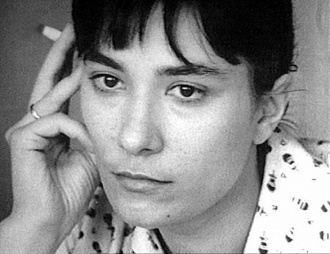This is the last article you can read this month
You can read more article this month
You can read more articles this month
Sorry your limit is up for this month
Reset on:
Please help support the Morning Star by subscribing here
ONE of the most significant books on art to appear this year is Art for All: British Socially Committed Artists from the 1930s to the Cold War by Christine Lindey (Artery).

While I played a modest role in getting her book published, that shouldn’t disqualify me from recommending it because Lindey has rediscovered those socially committed artists of the period who produced a whole body of significant works but who have been ignored by mainstream writers and critics.
In clear and accessible language, she shows how art and politics are interrelated and how Britain’s class system has affected artistic production and exposure. A highly readable demonstration of erudite Marxist criticism, a valuable history and an aesthetic pleasure, it's beautifully designed with many illustrations.
Kasper Brasken’s The International Workers’ Relief, Communism, and Transnational Solidarity: Willi Munzenberg in Weimar Germany (Palgrave Macmillan) reveals the immense influence of Munzenberg’s relief organisation between the wars.
A close friend of Lenin, Luxemburg, Liebknecht and others, Munzenberg was one of those stellar figures in the communist movement who has also, like Lindey’s socialist artists, been eclipsed.
His international campaigns were the forerunners of many NGOs and solidarity organisations we have today. His work on behalf of the young Soviet Union, the colonial nations and the struggle against fascism was monumental but who knows his name today?
In this pioneering work, Brasken demonstrates the breadth and influence of the organisation and its significance for the international socialist movement. He writes with utmost clarity and, although this is an academic book, it is highly readable and accessible as well as being a valuable addition to any library of working-class history.
The GDR writer Brigitte Reimann’s diaries, now available in English for the first time read like a riveting novel.
In I Have No Regrets: Diaries, 1955-1963, she exposes her innermost thoughts and feelings with a gut-wrenching honesty. An ongoing dissection of an artist’s uneasy relationship with the state and her society, the diaries lays bare her conflicts both with the bureaucracy and with her many lovers, her frustrations with authoritarianism and her failed attempts to live and write as a socialist who craves for a better and more just world.
While the GDR gave writers a privileged position and generous support, it also made demands that could not always be met if writers wished to maintain their integrity.
I Have No Regrets: Diaries, 1955-1963 is published in English early next year by Seagull Books.










